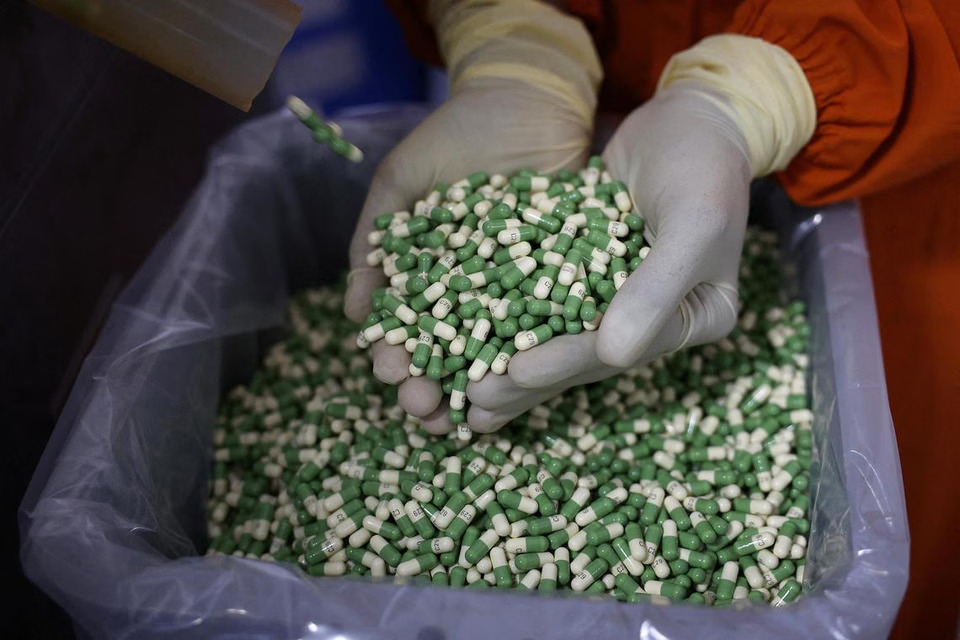
Mon, May 12, 2025
Shares of pharmaceutical companies fell across the world after US President Donald Trump said he planned to order a cut in US prescription drug costs to bring them in line with other countries, prompting concern that profits will take a hit.
European drugmakers including Novo Nordisk A/S, AstraZeneca Plc and Roche Holding AG slid, missing out on a broader rally, while in Asia, the pharmaceuticals subgroup in Japan’s Topix Index posted its biggest one-day loss since August. Shares in US drugmakers were also weaker, with Eli Lilly & Co., Pfizer Inc., Bristol-Myers Squibb Co. and Merck & Co. Inc. all down in premarket trading in New York.
The declines come after Trump said on social media he intends to sign an executive order lowering the price of prescription medicines at 9 a.m. on Monday in Washington, after reports emerged of the plan last week. His social media post didn’t detail how the order would work, or any limits that may apply.
“This has the potential to be very negative for the industry,” Bank Vontobel analyst Stefan Schneider said in a note, adding that the plan will probably be directed at Medicare, Medicaid and some hospitals. “Such a move will likely face lawsuits by the industry,” Schneider said.
Americans pay the most in the world for medicines, fueling innovation and driving the growth of the industry. The US government already negotiates prices for some of the highest-cost medicines used in Medicare under the Inflation Reduction Act, which was passed in 2022 under former President Joe Biden, with more slated to be added every year.
Firms that depend on the US for a large chunk of sales, including Japan’s Takeda Pharmaceutical Co., Astellas Pharma Inc. and Otsuka Holdings Co., are especially vulnerable, Hidemaru Yamaguchi, a health-care sector analyst at Citigroup Global Markets Japan Inc., wrote in a note.
For the European pharmaceuticals sector, companies such as Novo Nordisk, AstraZeneca, Roche, Novartis AG, GSK Plc and Sanofi SA generate between roughly 40% and 60% of their revenues in the US.
Novo Nordisk shares, which fell as much as 8.6% in early trading, were also weighed down after a head-to-head study showed Eli Lilly’s obesity drug Zepbound helped people trim about two inches more off their waists than Novo’s Wegovy.
It’s not the first time Trump has targeted high drug costs. His current plan seems similar to one proposed during his first term aimed at capping Medicare drug prices, Stephen Barker, an equities analyst at Jefferies Japan Ltd., wrote in a note. The effort was struck down in federal court after drug companies challenged it, claiming the administration hadn’t properly carried out the rule-making process.
Still, a renewed push to lower drug prices may have an “enormous” impact on the sector’s revenues, Barker said. That’s because Medicare, a government-funded program that offers health insurance for people aged 65 or older, and Medicaid, which covers low-income citizens, may collectively account for about 40% of all drug sales in the US, he said.
Trump’s plan likely only affects the drugs up for price negotiations under the IRA, said Evan Seigerman, head of health-care research at BMO Capital Markets. “Importantly, the government has no power to set prices in the commercial market,” and potentially faces resistance from House Republicans to implementing legislation beyond what can be done via the executive order, Seigerman said.